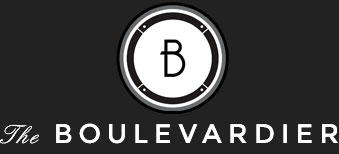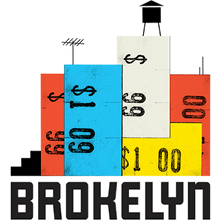Name: Michael Restiano
Age: 22
College & Majors/Minors: Tufts University & University of Oxford, English
Current Location: New York, New York
Current Form of Employment: Content Strategist & Freelance Writer
Where do you work and what is your current position?
I currently work as a content strategist at SapientNitro, a global digital advertising agency. My job here at SapientNitro is to help brands get the right content (that being anything from web copy, to images, to long-form articles—like the thing you’re reading right now!) to the right audience member at the right time. Doing that work requires an equal mix of strategic planning and creative thinking—it’s a great exercise in using both halves of my brain!
When I’m not in the office, I’m working on my writing career. I currently freelance for two blogs: the Huffington Post and the SALT Blog, and I also have one short story and one short memoir in the works.
Tell us about how you found your first job, and how you found your current job (if different).
One of my acquaintances from Tufts in the year above me found a job at SapientNitro when she graduated. The company was looking to hire more entry-level folks right around when I had graduated, so my friend sent an email out to a marketing professor we had both had during our time at Tufts advertising the positions. Luckily, this professor keeps distribution lists for all of his past classes, so that email ended up reaching me.
I applied for one of the jobs, went through the process, and the rest is history! I have a friend, a lot of effort, and a ton of sheer luck to thank for how I ended up at my current position.
I think luck had a major role to play in my freelance gigs, too! I had been a content intern at SALT (which is actually a product created by American Student Assistance to help recent grads and college students with personal finance and student loan repayment) the summer after my sophomore year in college. They liked me so much they decided to let me keep writing for them on an independent contractor deal.
My senior year in college, I attended a marketing conference where Arianna Huffington was the keynote speaker. She shared some of her thoughts around the importance of sleep in a professional’s life. I agreed with most of her arguments, but had a few contending points. She had given the audience her email at the end of the presentation, and encouraged us to write to her with our thoughts. I did exactly that, never thinking she’d actually read the message. When I saw the response in my inbox, I remember nearly spilling my tea all over my laptop. That message ended up becoming my first Huffpost blog, “The Sleepless Generation.”
What was another writing-related job that was important in your career?
I had two writing heavy internships that I think heavily influenced where I am now.
The first was a part-time summer internship (my first one, in fact) at my college’s Advancement Communications office. My job there was to create digital stories and content based on current campus happenings that would appeal to Tufts graduates. It was my first lesson in how to write for a specific audience, and I also saw first-hand how technology has made marketing and editorial fuse more closely together than ever before. After that summer, I knew that I wanted to pursue marketing as a career path.
My content internship at SALT further solidified that notion. This time, I was tasked with writing personal finance stories (“creating content,” in marketing lingo) that would resonate with millennial college students and recent graduates. SALT was a unique challenge for me because I had to figure out how to make a typically “unsexy” topic appealing. During my time there, I learned that there’s a good story behind almost EVERYTHING—you might just have to look harder for it with some subjects.
What did you do in college to prepare for your post-grad life?
First off, on a strictly practical level, I interned A LOT. I’d say that by the time I graduated, I had done around 7 or 8 marketing internships. These experiences gave me the skills I needed to make the jump from student to young-professional, and made my senior-year job-search much easier.
On a more abstract level, I think one of the most important tendencies I had in college was that I constantly sought opportunities and experiences outside of my comfort zone. I think a lot of people close themselves off to new opportunities because they get comfy—they get caught up in their day-to-day, and can’t imagine what their lives would be like if their routine completely changed. Everybody ultimately wants comfort and stability (English major response coming at ya right here) in their lives, but the downside to being stable is that you never grow. Everything just stays the same, for better or worse.
When you’re a young person, you should not be getting “stuck” in anything—you simply do not know enough about the world or yourself yet. So when that opportunity to do something completely out there/not like you/ really random comes along, you take it. The space just outside your comfort zone is where you learn and grow the most.
For me, that opportunity was spending my entire junior-year abroad at the University of Oxford. Most of my friends were doing semester programs in more exotic locations, so initially I struggled with just following the crowd and doing the same. I decided to do something different, and looking back, I consider it to be the best decision I’ve made in my life thus far. I learned so much about myself, socially, academically, and professionally, that my life changed so much for the better.
What is your advice for students and graduates with an English degree?
Intern your tiny liberal arts butt off. There’s definite value in an English or other liberal arts degree: it gives you the intellectual foundation you need to be a great critical thinker, analyst, and writer in a way that no business degree ever can.
But frankly, it’s not enough to get you hired at your dream job, assuming your dream job is anything even remotely corporate.
Employers hire based on skills, not potential to gain skills. You can only get those skills from pre-professional experiences like internships. Experience is the currency of any position, and in this job market, you need quite a bit of it even to just get your foot in the door.
I believe in this so much, that I’m willing to make a bet with you.
If you do an internship directly relevant to your desired career every summer after your freshman, sophomore, and junior years of college, you will not have a hard time finding a job after your senior year. If I’m wrong, feel free to send me hate mail at Mresti02@gmail.com
Outside of that, my advice would be don’t fear the unknown and remember to enjoy yourself! You only get to experience your 20s once, so make sure that you leave some time outside of work to do what you love and to see the people you care about.
Follow Michael on Twitter and connect with him on LinkedIn.


















































































